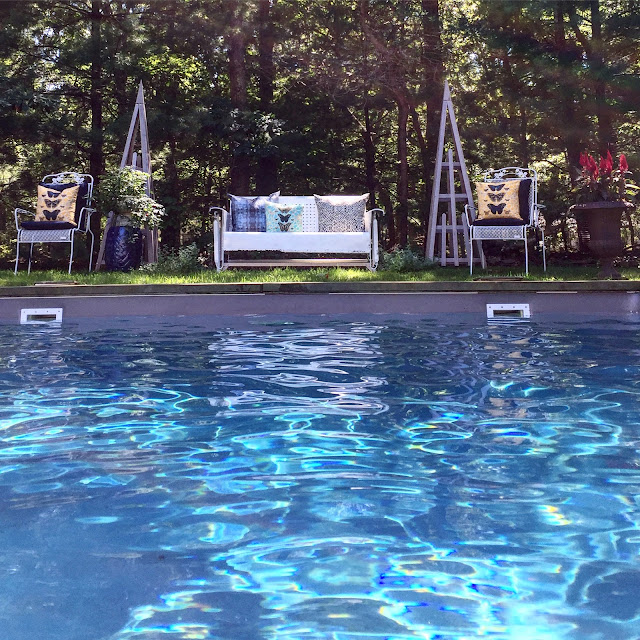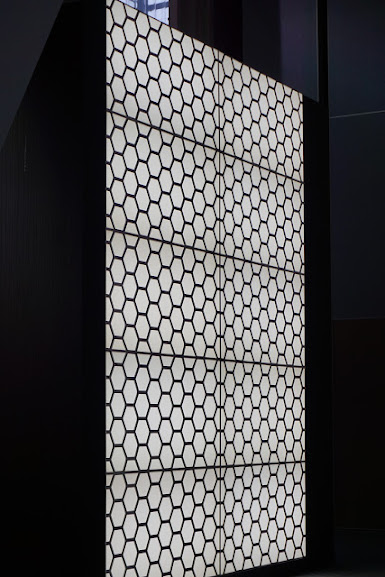dreaming of Italian gardens from cold, cloudy New York City
breakfast in Positano (Gabby with grandma, Judy)
Dreams of Italy
Three generations of women
visit the gardens of Italy together -
a most treasured trip
Judy and Gabby shopping in Rome
my lil' Gabby
walking through the beautiful gardens at Villa d'Este
in the historic town of Tivoli
views from Tivoli
The gardens of Italy are a departure from secret, small areas and surprises you find in English gardens. Italian gardens are
ordered, symmetrical with lots of statues, sculptures and walkways. Maybe not as many flowers as in other gardens, the Italians use architecture, columns, water and portrayals of mythical characters to stir our interest and create drama, and mixed with the unexpected and decadence the result impresses.
Here I am under the many waterfalls
of this Roman fantasy land
of this Roman fantasy land
As we contemplate a couple of winter months ahead,
let me reminisce about
one beautiful Italian garden in particular
over in the historic town of Tivoli in Italy is
Villa d'Este:
a walk through beautiful Italian architecture and garden design
memories of the
Mediterranean gardens
come back as I fondly recall
this trip and my education about the artistry of Italian gardens.
Since my mother was a "master gardener",
we decided to take the short drive from Rome to visit one of the Tivoli gardens at Villa d'Este
(there are three - Viklia Gergoriana, Villa Adriana, Villa d'Este).
come back as I fondly recall
this trip and my education about the artistry of Italian gardens.
Since my mother was a "master gardener",
we decided to take the short drive from Rome to visit one of the Tivoli gardens at Villa d'Este
(there are three - Viklia Gergoriana, Villa Adriana, Villa d'Este).
Tivoli is a masterpiece collection of Italian Gardens. It has unique fountains, nymphs, grottoes and music. These gardens outside the ancient village of Tivoli in Italy were designed in the 1500s in the manner of the ruins of ancient villas. There are imposing terraces taking us back to the Roman era. Cardinal Ippolito II d’Este brought his ideas of the courts of Ferrara, Rome and Fontainebleau, reviving them in 1550 in the village of Tivoli while he was the acting governor. In 1560 he worked with painter-architect-archaeologist Pirro Ligorio and architect Alberto Galvani.
The palace itself was decorated in the style of late Roman Mannerism. The property and gardens have gone through many transformations, and for a while they became neglected, however, during World War I the property was deeded to the Italian State. During the 1920s it was restored and opened to the public, then after a series of damage due to bombings during World War II there was yet another restoration.
always goofing around
(notice the DO NOT DRINK WATER SIGN)
Gabby pretends
the gorgeous pool seems to go on forever, and with the
waterfalls and thermal baths,
Tivoli has all the beauties one imagines of the Romans.
Upon arrival we were welcomed by maze-like pathways with exotic flowers, antique statues and more. Villa D'Este is an UNESCO world heritage site. It is a wonderful relic of the Renaissance era. We walked through the ponds, columns, a long, beautiful outdoor pool and all showing the Roman's talents in architecture.
Villa d’Este is known for its splendid use of water.
Diana of Ephesus, the
great nature goddess was sculpted in 1568 by Gillis van den Vliete. It was originally part of the Fountain of the Organ then moved in the 17th
century due to its graphic nature, at the time there was criticism for its "pagan" appearance.
on this blustery,
January day
from New York City!
Happy Nesting XO
photos taken during our trip in 2004
I hope this story inspires you to start thinking of gardens & sunshine on this blustery,
January day
from New York City!
dining under the lemon grove in Capri
Happy Nesting XO





























